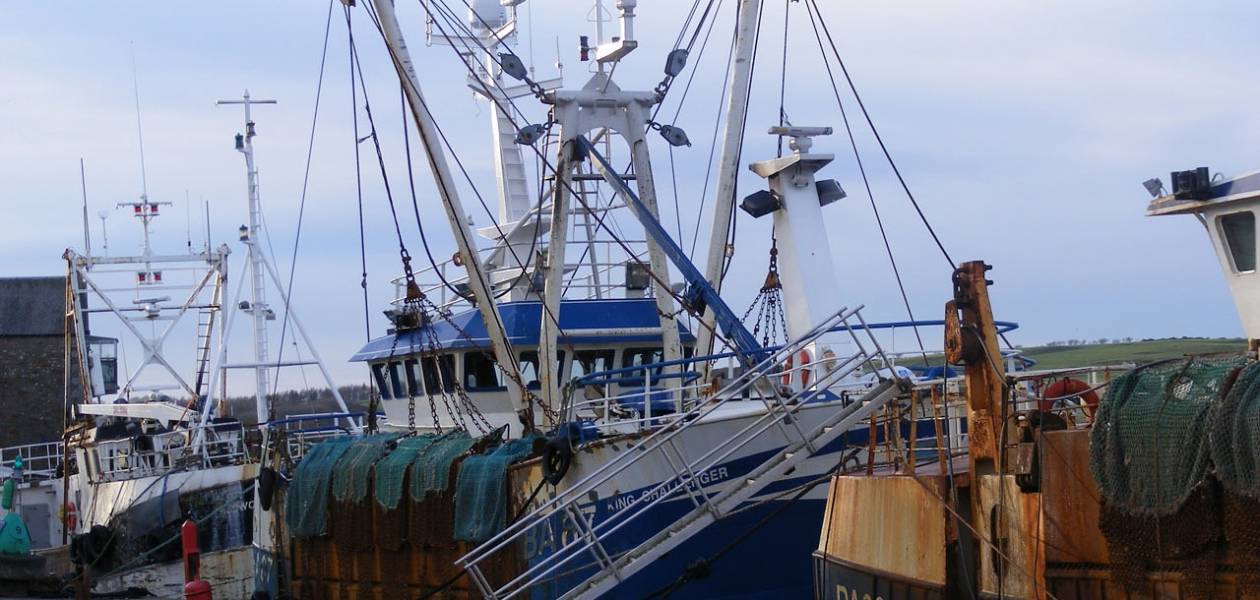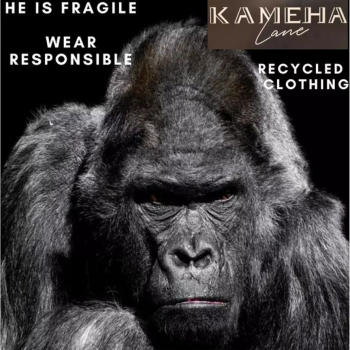
- UK offshore benthic Marine Protected Areas, designated to protect the seabed, were subjected to over 136,000 hours of apparent industrial fishing by UK and EU vessels in 2022.
- This amounts to over 15 years’ worth of negative impact in Marine Protected Areas when you consider these hours of simultaneous apparent fishing as a linear period.
- Eight in ten adults (80%) believe UK laws to protect the ocean must be strengthened.
- Over three quarters (76%) of the British public agree that bottom trawling in marine protected areas should be banned.
- To highlight the issue, Oceana UK has commissioned a sand art installation portraying public frustration towards government inaction on destructive fishing.
New analysis by Oceana UK reveals that UK and EU vessels spent over 136,000 hours appearing to fish in supposedly ‘protected’ British marine areas in 2022, with at least 7,000 hours involving destructive bottom towed fishing gear*. This amounts to 15 years’ - or almost 812 weeks - worth of wilful negative impact to the ecosystem and biodiversity in Marine Protected Areas (MPAs) when you consider these hours of simultaneous trawling as a linear period of time.
The findings are launched today (Thursday 2 March) to coincide with ministers gathering in Panama for the global Our Ocean conference. Oceana UK (and Sea Shepherd UK) is calling on UK ministers to show real ocean and biodiversity leadership and ban bottom towed gear and other industrial fishing in MPAs by 2024 to meet the global target of protecting 30% of the ocean by 2030.
In total, analysis of data from Global Fishing Watch (GFW), along with European and UK registries of fishing gear types*, shows almost one thousand (907) EU and UK fishing boats appeared to be active in offshore MPAs in 2022. Time spent appearing to fish by EU and UK vessels, primarily industrial trawling boatS, in MPAs has increased by over 4,000 hours compared to 2021.
Meanwhile, new consumer research** demonstrates the public’s shock at the level of industrial trawling in UK seas, with 80% of the British public agreeing laws to protect the ocean must be strengthened.
Hugo Tagholm, Executive Director of Oceana UK, said: “Industrial trawling and dredging of the seafloor are the most destructive fishing techniques in use today.
“Our analysis exposes the appalling scale of apparent industrial fishing in UK marine protected areas in 2022, including destructive trawling. The British public are shocked at the government’s failure to properly protect sea life in these so-called sanctuaries. The research also makes a mockery of the UK’s position as leader of the Global Ocean Alliance and commitment to 30x30 at the recent UN Biodiversity COP15.
“As a minimum, we need to stop destructive fishing in marine protected areas and end the public deceit that these regions are safeguarded from industrial exploitation. We cannot stand for this ‘bluewash’ any longer. The attack on ocean life must end.”
The UK Government licensed over 2,000 EU and UK fishing vessels to fish in UK waters in 2022, including all but six offshore MPAs. Oceana UK considers the issuing of fishing licences which permit bottom trawling or other industrial fishing in MPAs to be in breach of various nature laws, including the Offshore Habitats Regulations, Marine Act and Fisheries Act.
The government may be benefitting from the fact many people do not understand the problem, as our survey indicates over one third of Brits have never heard of the term ‘bottom trawling’. Upon learning what bottom trawling is and the issues surrounding it, three quarters of UK adults (76%) agree that harmful seafloor trawling in MPAs should be banned. The same proportion (77%) agree that the UK government is failing to protect UK marine life.
Dr Emma Sheehan, Associate Professor of Marine Ecology at University of Plymouth, added: “Oceana UK’s analysis proves industrial fishing is prevalent in the UK’s Marine Protected Areas.
“Industrial bottom trawling and dredging is a devastating practice which has extreme effects on seabed and biogenic habitats. These areas act as important nursery and feeding areas for essential marine life, including endangered species. The seabed also provides important ecological and environmental functions: filtering water, binding sediments and capturing carbon.
“We must urgently expand and enforce protection of these habitats. My research at Lyme Bay, one of the UK’s largest Marine Protected Areas, where bottom trawling was banned has demonstrated the incredible capacity for reef recovery and resilience when we protect these ecosystems.”
To communicate the British public’s disbelief at this scandal and frustration at government hypocrisy, Oceana UK has commissioned a sand art stunt featuring Prime Minister Rishi Sunak with a fish in his mouth and the strapline #EndDestructiveFishing. The installation took place at Cayton Bay in Scarborough, close to the Holderness Offshore MPA and Markham’s Triangle MPA that are yet to be protected from bottom trawling, but also Dogger Bank MPA where trawling has now been banned, highlighting best practice for MPA management to protect and restore marine life.
Following a legal challenge that Oceana UK undertook in 2021, the UK and Scottish Governments agreed to proactively manage all offshore MPAs by 2024. However, there is still no commitment to ban bottom towed fishing activity in all MPAs and it is currently only banned through MMO byelaws in three offshore MPAs, along with one partial ban[7]. In January 2023, Defra proposed byelaws in 13 MPAs, but these have been subject to criticism for only protecting reef features, where trawling is unlikely to occur.
Oceana believes all industrial fishing, especially all bottom towed gear, should be banned from entire MPAs. This could be achieved through a simple condition on the licences issued to industrial fishing vessels, prohibiting them from fishing in offshore MPAs.
Resolved to end destructive fishing and restore marine biodiversity, Oceana UK is campaigning for bottom trawling to be banned in all Marine Protected Areas by 2024 and a minimum of 30% of UK waters to be fully protected by 2030.
Analysis by Oceana UK used data from GFW, an independent non-profit founded by Oceana in partnership with Google and SkyTruth. GFW uses AIS data, machine learning, and vessel registries to allow anyone with an internet connection to see where and when a vessel is fishing*.
-------------------------------------------------------------------------------------------------------------------------
The above report is supported by Sea Shepherd UK and is promoted here and on our social media channels with the permission of Oceana UK.
About Oceana UK - https://uk.oceana.org
Oceana UK is a charity dedicated to achieving measurable change for our ocean and seas by conducting science-based campaigns and advocacy.
About Global Fishing Watch - https://globalfishingwatch.org
Global Fishing Watch, a provider of open data for use in this report, is an international nonprofit organization dedicated to advancing ocean governance through increased transparency of human activity at sea.
The views and opinions expressed in this report are those of the authors, which are not connected with or sponsored, endorsed, or granted official status by Global Fishing Watch.
By creating and publicly sharing map visualisations, data, and analysis tools, Global Fishing Watch aims to enable scientific research and transform the way our ocean is managed. Global Fishing Watch’s public data was used in the production of this publication.
Sources : SEA SHEPHERD
Posted on 2023-03-10 12:09









Comments